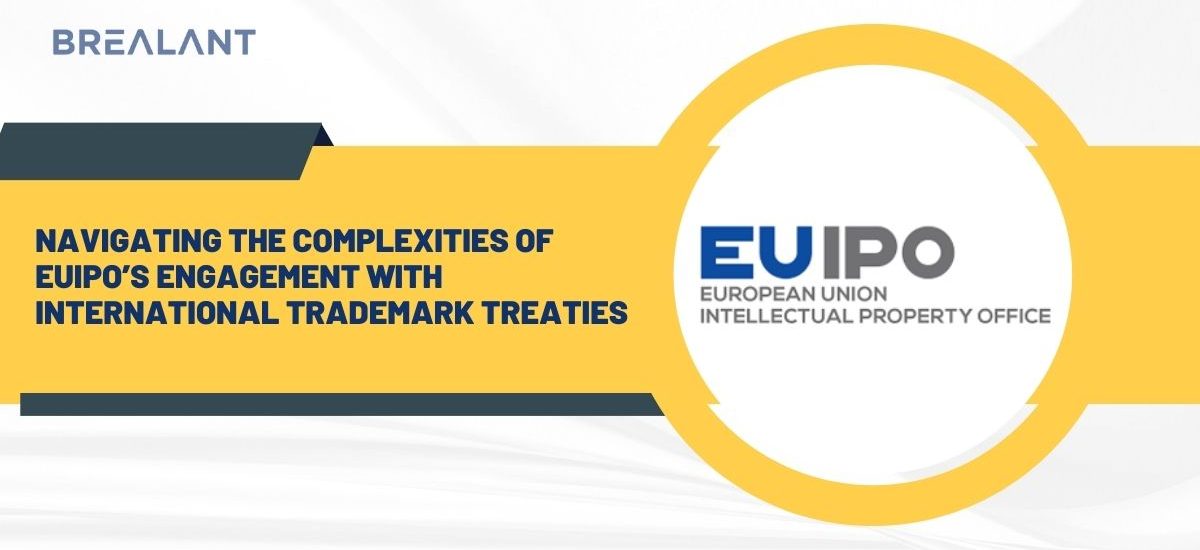In an era where global trade is the norm, protecting intellectual property has become a paramount concern for businesses worldwide. The European Union Intellectual Property Office (EUIPO) plays a crucial role in this landscape, particularly concerning trademarks. Navigating the complexities of EUIPO’s engagement with international trademark treaties requires a comprehensive understanding of the evolving legal landscape and the dynamics of global commerce.
The EUIPO’s Role in Trademark Protection
The EUIPO, established in 1994, manages the European Union’s trademark and design registration systems. It is a centralized trademark registration and enforcement hub aiming to foster innovation and economic growth within the EU member states.
One of the key objectives of the EUIPO is to align its practices with international standards, fostering collaboration and coherence in the global intellectual property ecosystem. This alignment is achieved through active participation in and adherence to various international trademark treaties.
Understanding the International Trademark Treaties
The Agreement on Trade-Related Aspects of Intellectual Property Rights (TRIPS), administered by the World Trade Organization (WTO), is a cornerstone in the international framework for intellectual property protection. While not specific to trademarks, TRIPS sets forth general principles that member countries, including EU member states, must adhere to in their intellectual property laws.
The Madrid Protocol and the Singapore Treaty on the Law of Trademarks are significant international treaties addressing trademarks. The Madrid Protocol facilitates the international registration of trademarks by providing a streamlined process for applicants seeking protection in multiple countries. The Singapore Treaty aims to harmonize administrative trademark registration procedures, simplifying and standardizing the process.
EUIPO’s Engagement with the Madrid Protocol
The Madrid Protocol, adopted by the EU in 2004, allows applicants to register their trademarks in multiple member countries through a single application. EUIPO plays a pivotal role in this system by acting as a central receiving office for international trademark applications. This streamlines the registration process and enhances the efficiency of protecting trademarks across the EU.
EUIPO’s adherence to the Madrid Protocol demonstrates the EU’s commitment to facilitating international trade and protecting the interests of businesses operating in the region. However, challenges arise in harmonizing the diverse legal systems and practices of member countries, necessitating ongoing efforts to refine and improve the functioning of the Madrid System.
EUIPO’s Implementation of the Singapore Treaty
The Singapore Treaty, which came into force in 2009, focuses on simplifying and standardizing trademark registration procedures. The treaty aims to create a more user-friendly environment for trademark applicants and owners by promoting transparency and efficiency.
EUIPO actively engages with the principles outlined in the Singapore Treaty, working towards harmonizing administrative trademark registration procedures across EU member states. This harmonization is crucial for establishing a consistent and predictable framework that encourages businesses to protect their trademarks within the EU.
Challenges in Navigating the Complexities
Challenges persist despite the progress made in aligning the EU’s trademark practices with international treaties. The diversity of legal systems, languages, and cultural nuances among EU member states poses hurdles in achieving complete harmonization. Differences in interpretation and implementation of treaty provisions can lead to inconsistencies in trademark protection.
Additionally, the continuous evolution of technology and the digital landscape introduces new challenges in trademark enforcement. The rise of e-commerce, online counterfeiting, and the emergence of non-traditional trademarks, such as sound and motion marks, demand adaptability from the EUIPO and international trademark treaties.
The Future of EUIPO’s Engagement
As technology and business practices evolve, EUIPO’s engagement with international trademark treaties will continue to adapt. Addressing emerging challenges and leveraging advancements in intellectual property law will be essential for maintaining the effectiveness of the EU’s trademark protection framework.
Furthermore, EUIPO’s global collaboration with other intellectual property offices will play a crucial role in shaping the future of international trademark protection. Establishing best practices, sharing information, and fostering a cooperative environment will contribute to a more robust and cohesive global trademark system.
Conclusion
Navigating the complexities of EUIPO’s engagement with international trademark treaties requires a nuanced understanding of the legal landscape, the evolving nature of global commerce, and the challenges posed by technological advancements. EUIPO’s commitment to aligning with international standards, as seen through its participation in treaties like the Madrid Protocol and the Singapore Treaty, underscores the importance of harmonizing trademark protection practices on a global scale. As businesses increasingly operate across borders, the collaboration between EUIPO and international partners remains crucial for creating a resilient and practical framework for trademark protection in the 21st century.
Protecting intellectual property has become paramount in the rapidly evolving landscape of global commerce. The European Union Intellectual Property Office (EUIPO) plays a crucial role in this arena, particularly concerning trademark protection. To safeguard your intellectual property for the long haul, staying updated on trademark protection laws is imperative. With Brealant, a trusted IP law firm, you can stay ahead of the curve and ensure the absolute safety of your valuable intellectual property.



